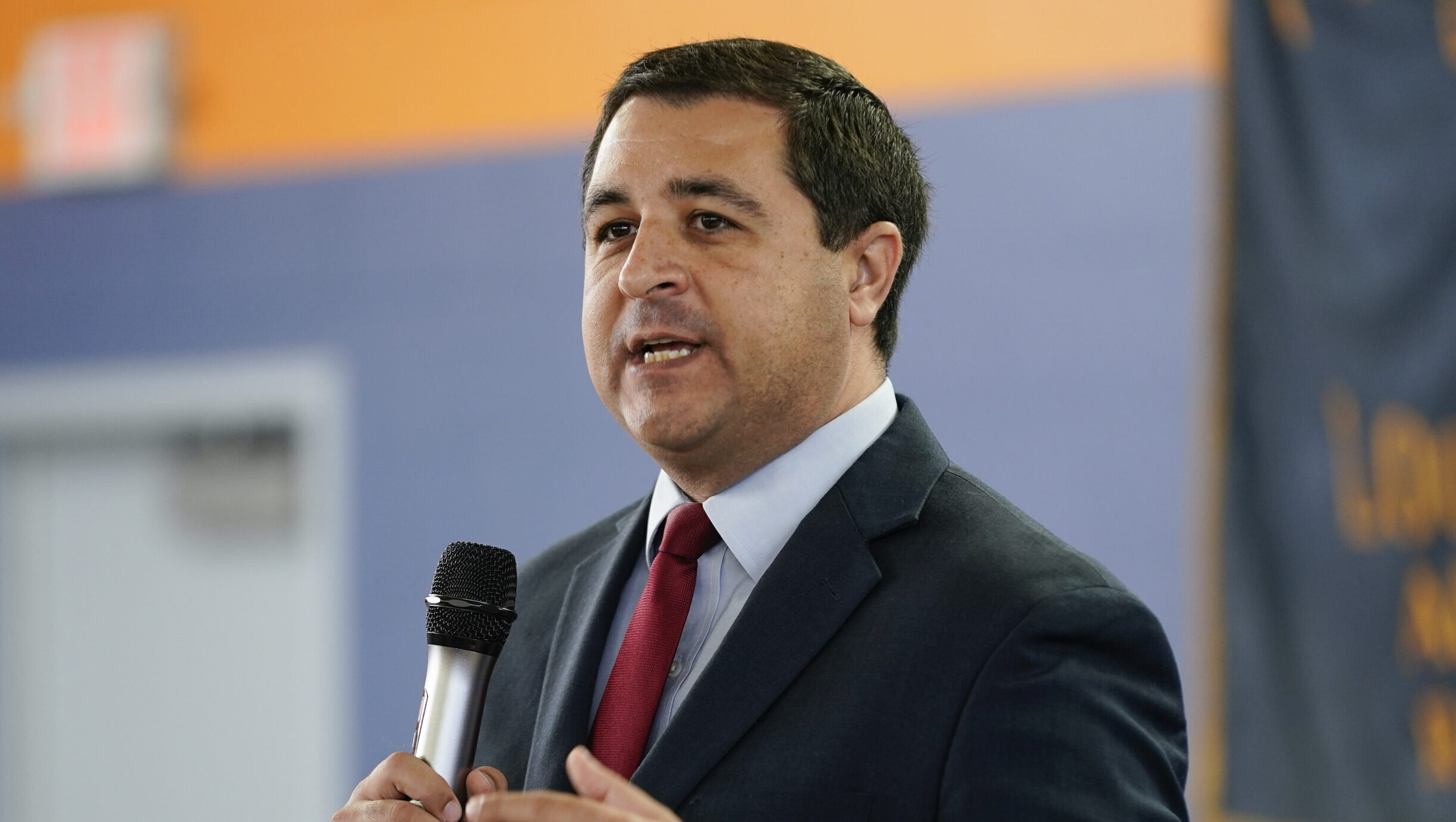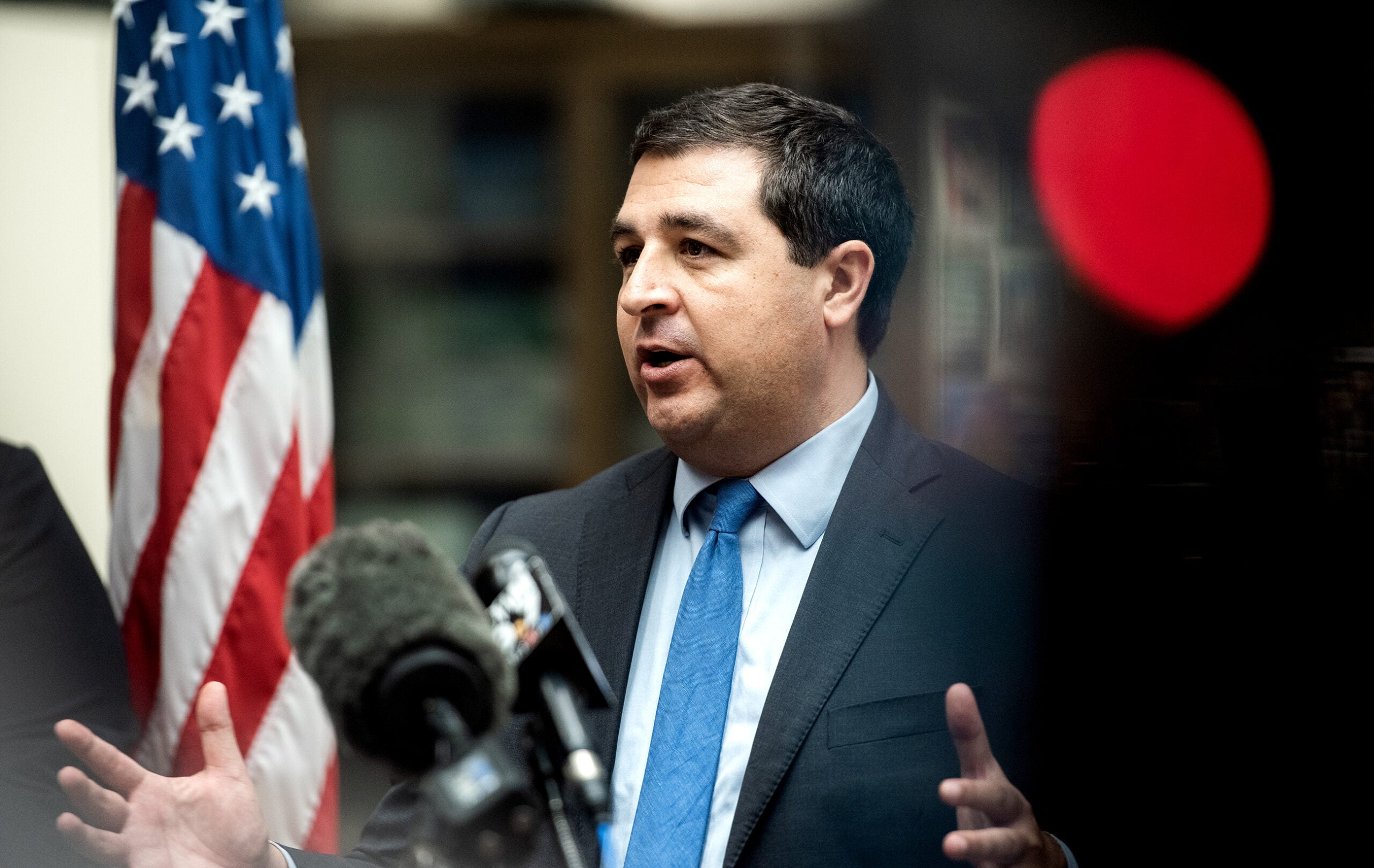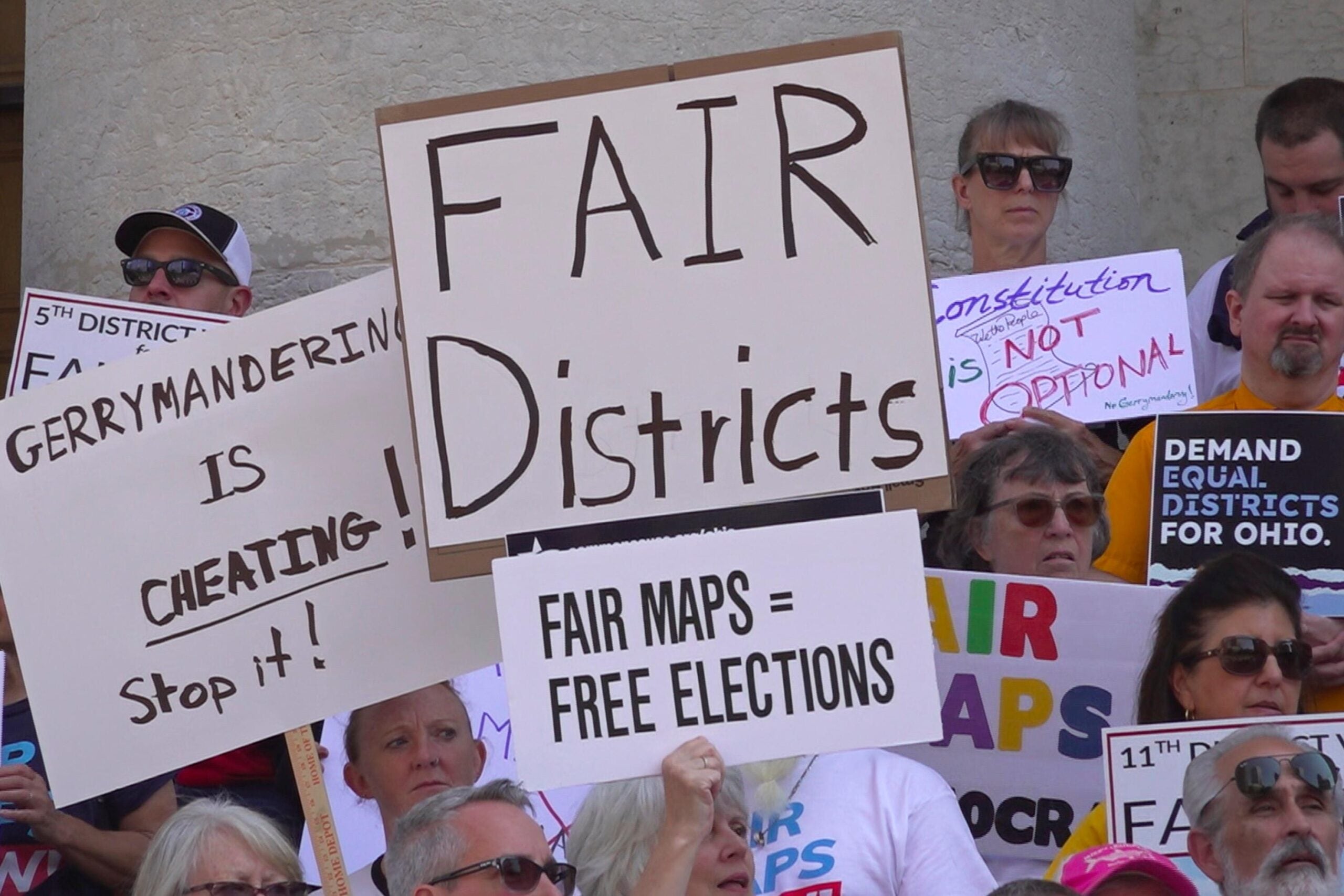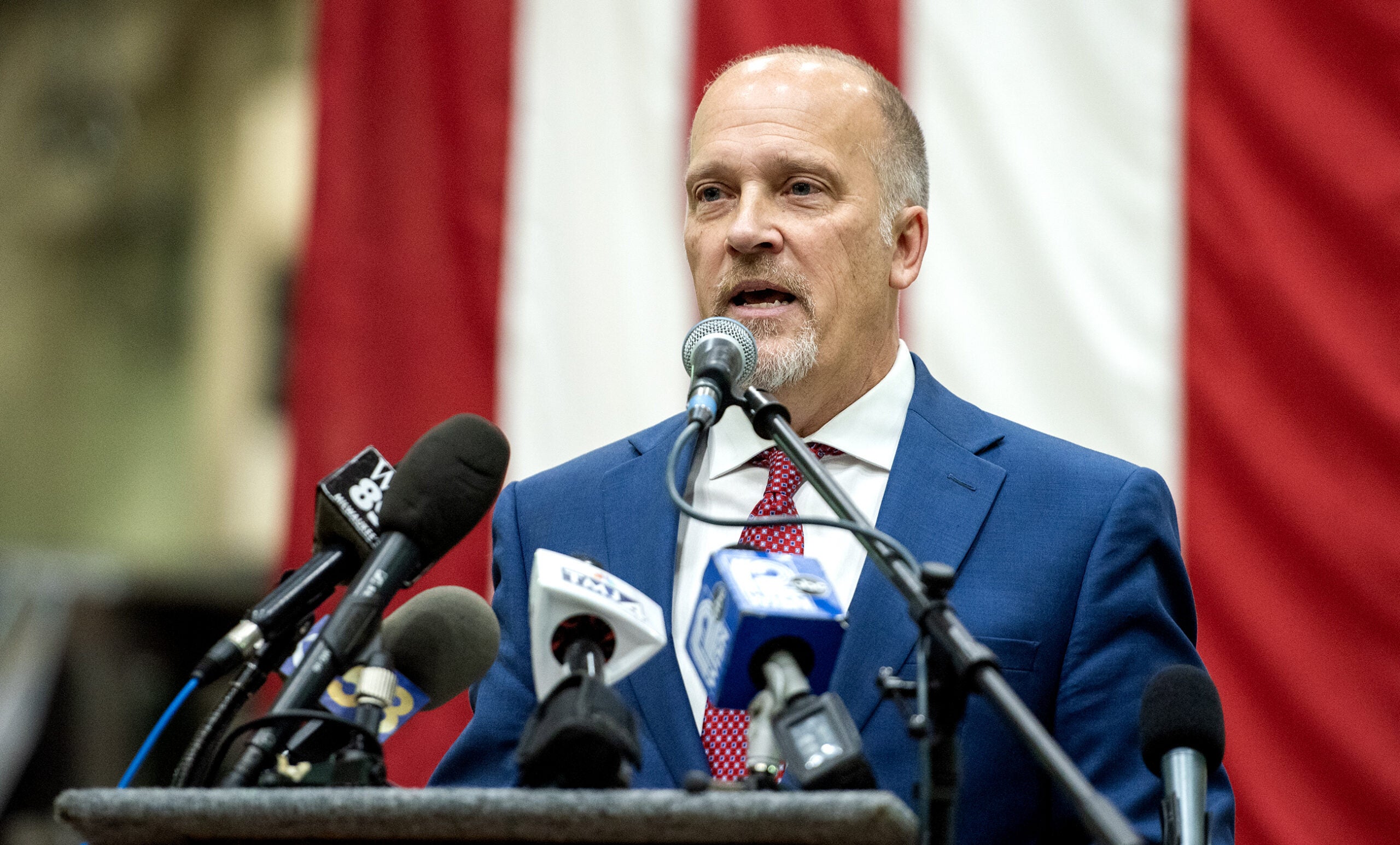Wisconsin justices are weighing where the attorney general’s power ends and the Legislature’s begins in a dispute over who has the authority to resolve lawsuits.
The state’s Supreme Court heard arguments Wednesday in a case brought by Democratic AG Josh Kaul.
At issue is a six-year-old state law that gives the Legislature’s Joint Committee on Finance the final say about whether to approve settlements in civil lawsuits prosecuted by the state’s attorney general.
News with a little more humanity
WPR’s “Wisconsin Today” newsletter keeps you connected to the state you love without feeling overwhelmed. No paywall. No agenda. No corporate filter.
The law was one of several passed by Republican lawmakers in late 2018 to limit the power of Wisconsin’s governor and attorney general.
Lawmakers approved those changes in a lame-duck session shortly after Kaul and Tony Evers, both Democrats, won their elections, replacing Republicans as attorney general and governor.
Now the state’s high court is considering whether parts of one of those laws violate the separation of powers principle that’s laid out in Wisconsin’s Constitution.
Kaul’s office is arguing that the law encroaches on the AG’s control over specific types of civil cases. That includes cases that have to do with the executive branch’s enforcement authority, such as litigation aimed at enforcing environmental and consumer protection laws, the AG contends.
“Having this sword, the legislative committee sword, hanging over our head infects our decision-making at every stage and every action in these categories — whether to prosecute, how to prosecute, how to talk with our clients, when to pursue negotiation and the terms,” Assistant Attorney General Hannah Jurss told justices Wednesday.
But Misha Tseytlin, an attorney representing Wisconsin’s Republican-controlled Legislature, said lawmakers have an “institutional interest” in oversight of settlements.
“When we’re talking about settlements, it’s important to remember we’re talking about not the Department of Justice money, not the agency’s money, but the people’s money,” Tseytlin said during oral arguments.
Tseytlin cited a 2020 Wisconsin Supreme Court decision in response to a different suit brought by the Service Employees International Union. In that case, the court’s then-conservative majority mostly upheld Wisconsin’s lame-duck laws and found they didn’t violate the separation of powers principle.
The lawsuit argued Wednesday was one of several cases brought in a continuing tug-of-war over power within Wisconsin’s divided government. Although Republicans have a majority in both chambers of the Legislature, Democrats won statewide races for governor and attorney general in 2018 and again in 2022.
During a news conference Wednesday, Kaul said the ongoing dispute over legal settlements is about preserving “checks and balances.”
“Part of our protection for our freedom and our liberty in this country is having multiple different sources of authority within the government,” the attorney general told reporters. “This case is about supporting that principle and ensuring that the separation of powers remains strong here in Wisconsin.”
This week’s oral arguments came after Kaul and the governor filed a constitutional challenge to the settlements law in 2021. In 2022, a Dane County circuit court sided with Kaul, but an appeals court later reversed that decision. Kaul is asking the Supreme Court to reverse the appellate ruling.
The Dane County judge who issued the lower court ruling was Susan Crawford, who on Tuesday won a contentious race for Wisconsin Supreme Court. The current Supreme Court will rule on Kaul’s petition before the end of this term — before Crawford takes office on Aug. 1.
Crawford will replace retiring liberal Justice Ann Walsh Bradley, allowing progressives to keep their 4-3 majority on the Wisconsin Supreme Court.
Wisconsin Public Radio, © Copyright 2025, Board of Regents of the University of Wisconsin System and Wisconsin Educational Communications Board.






